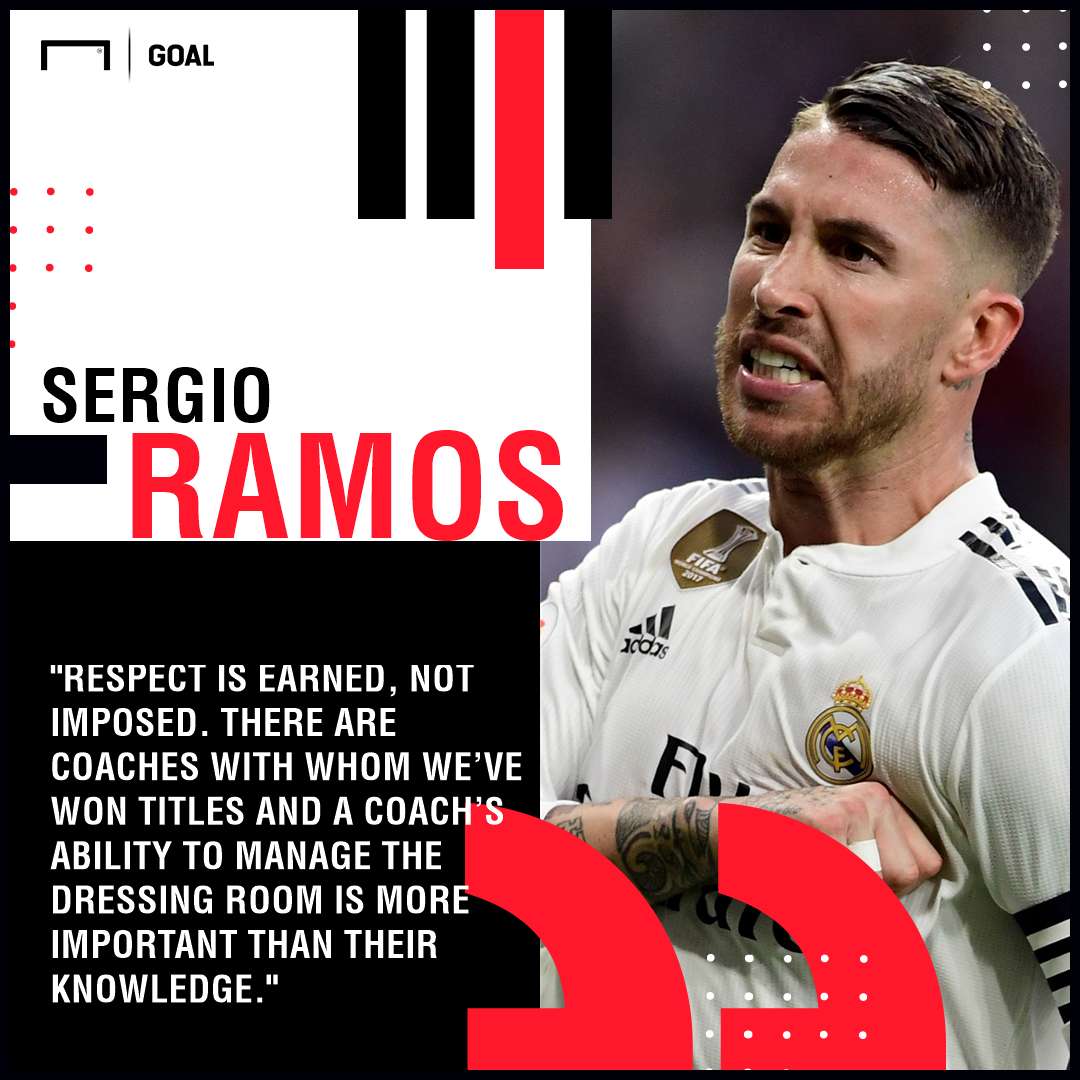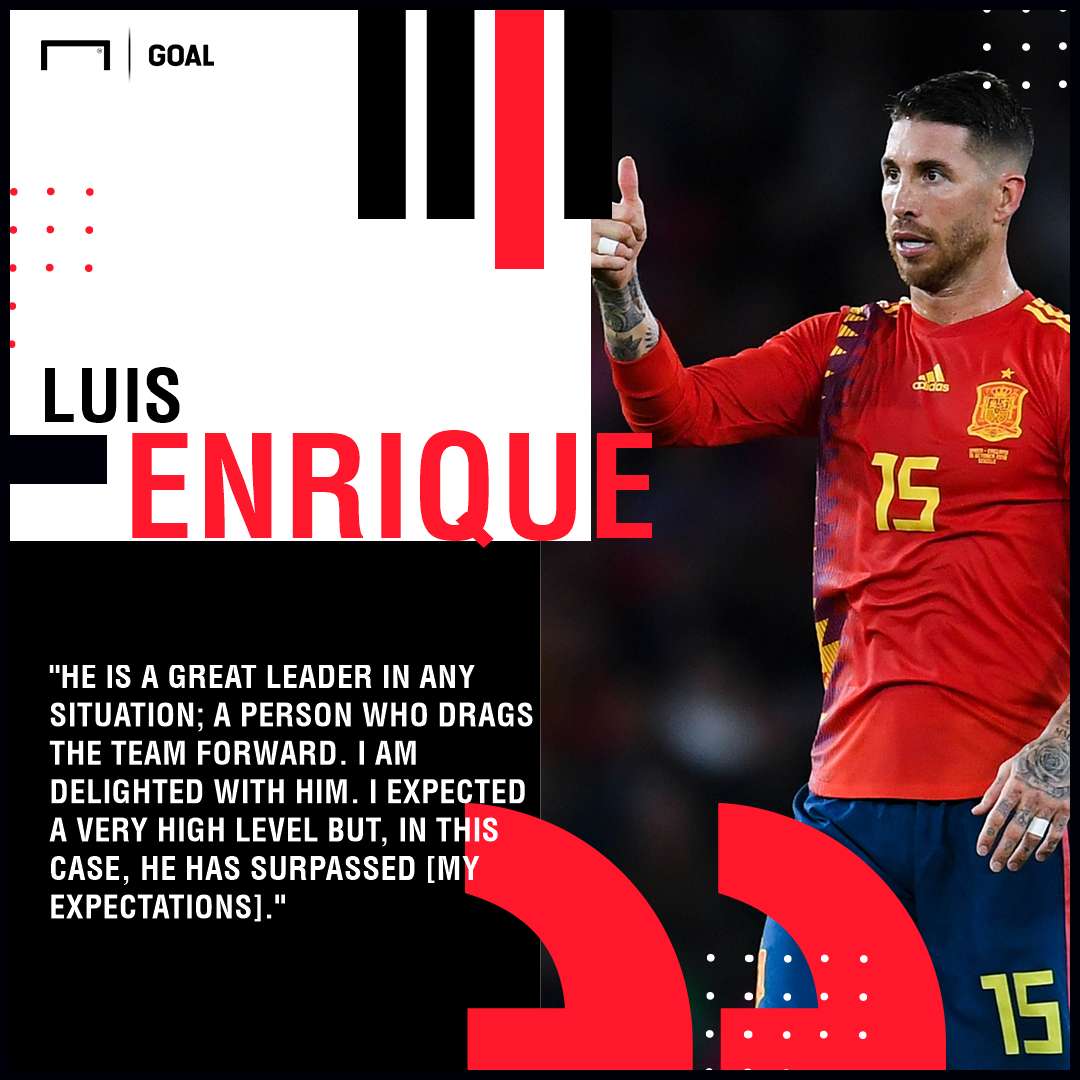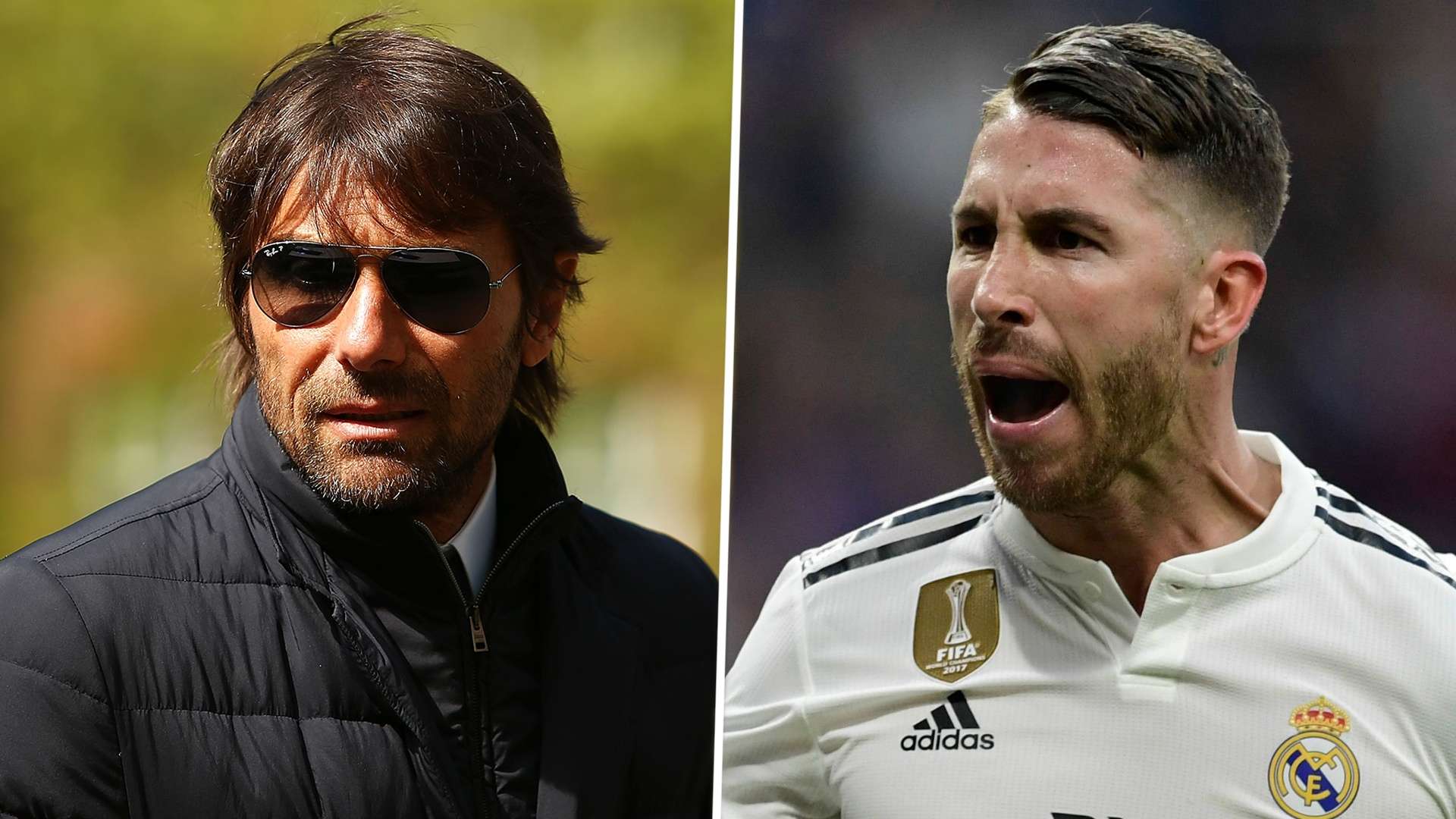Towards the end of Julen Lopetegui's ill-fated Real Madrid reign, club captain Sergio Ramos was asked if his vocal support for the under-fire coach might save him from the sack.
"If I am asked for an opinion, I give it," the defender replied. "But I do not think that an opinion of mine could influence such an important decision as the coach's continuity."
In a sense, he has since been proven right, as Lopetegui was dismissed after last Sunday week's calamitous Clasicio loss at Barcelona, in spite of the fact that he retained support of Ramos and the other Spain internationals within the Real dressing room.
However, Ramos was fooling nobody when he implied that his voice is not one of the most influential at the Santiago Bernabeu.
Indeed, last week's reports that Ramos had effectively vetoed Antonio Conte's appointment as Lopetegui's replacement seemed perfectly plausible.
Next Match
After all, Ramos had already issued what was construed by many as a warning that the Italian's notoriously authoritarian approach would not fly at Real.
"Respect is earned, not imposed," he declared after the 5-1 loss at Camp Nou.
"There are coaches with whom we’ve won titles and a coach’s ability to manage the dressing room is more important than their knowledge."
That is undeniably true at the Bernabeu, where Zinedine Zidane left on his own terms, while Jose Mourinho departed amid acrimony.
The diplomatic Frenchman flourished because he afforded the players the freedom he himself had enjoyed during the era of the Galacticos.
By contrast, the more confrontational Mourinho eventually paid the price as he made too many powerful enemies in the dressing room.
 Getty Images
Getty Images
It ultimately came down to a question of respect, with Ramos upset that he and many of his team-mates were being criticised in public by the prickly Portuguese.
It was also reported that when Mourinho berated Ramos for picking up the wrong man in a game against Barcelona, the defender questioned his coach's knowledge of the vagaries of man-marking given he had never played the game at the highest level.
Mourinho became so despised that Ramos and then captain Iker Casillas allegedly went to president Florentino Perez in 2013 and stated: "Presi, in June, either he leaves or we will."
That report emerged during a particularly polemic period in Madrid's history, during which there were numerous leaks to the press, on behalf of all of the parties involved in the breakdown of Mourinho's relationship with several players. As such, its veracity is impossible to determine.
What we do know, though, is that Ramos is a hugely influential figure at Madrid, and his influence has only grown since succeeding Casillas as captain in 2015.
 Getty Images
Getty Images
Having arrived at the Bernabeu from Sevilla 13 years ago, he has been at Madrid even longer than Perez and when the president wants to establish the mood in the dressing room, he consults Ramos.
He is Real's leader, on and off the field, the man that negotiates their bonus payments with the board, their most important defender when it comes to opposition forwards and the Madrid media. If someone attacks Real, Ramos is the first to respond.
He is also the first player to greet new signings, or academy players promoted to the first team, primarily to welcome them into the squad but also to impress upon them what it means to play for Real.
The Bernabeu crowd is as unforgiving as one of Ramos' tackles. Even the best players can be booed and Ramos not only knows but accepts the fickle nature of the fans.
It was he who defended the supporters for occasionally targeting all-time record goalscorer Cristiano Ronaldo.
"I can understand why they whistle Cristiano," the centre-half admitted. "Why not? They have also whistled me.
"They whistled Manolo Sanchis, [Jose Antonio] Camacho, [the Brazilian] Ronaldo, [Zinedine] Zidane. The fans have whistled everyone."
They whistled him again before and during Saturday's Liga win over Valladolid, for a variety of reasons.
 Getty Images
Getty Images
Last week's petulant reaction to a strong challenge from the 21-year-old left-back Sergio Reguilon in training was deemed unbefitting of a Madrid captain, while his error-strewn performance against Barca summed up his season so far.
Hardly surprising then, that some fans took a dim view of his apparent opposition to the hiring of Conte, a man renowned for his authoritarian, disciplined and organised approach to coaching.
And yet Ramos still ended up being cheered rather than jeered, after netting the penalty that sealed a crucial and morale-boosting win for the Blancos.
And there's the thing, it's not as if Ramos is immune to criticism. As football's No.1 villain, he is arguably more adept at dealing with it than most.
He is respected for always facing the press after a bad result. He always has plenty to say for himself, of course, and he has become embroiled in a number of public feuds over the years, most notably with former Spain team-mate Gerard Pique.
Ramos outbursts have never gone down particularly well in Barcelona, in general, yet when it came to picking a new Spain captain former Blaugrana boss Luis Enrique had no qualms about giving the armband to the Madrid skipper.
"He is a great leader in any situation," he enthused, "a person who drags the team forward. I am delighted with him. I expected a very high level but, in this case, he has surpassed [my expectations]."
Ramos may be an uncompromising character on the field but he is willing to make peace off it for the good of the team.
He may well be against the Conte appointment, not least because he was so supportive of Lopetegui, whose sacking as Spain coach also infuriated him, but that does not mean that he would make life difficult for the Italian were he to take over.
Previous appointments have not always been to Ramos' tastes but he has still resolved to do everything within his considerable power to help them succeed.
Essentially, he is the same type of captain as he is a player: a serial winner but a sore loser. As such, it's always much better to have him on your side than against you.
But then, Antonio Conte has already been warned by the man himself.


